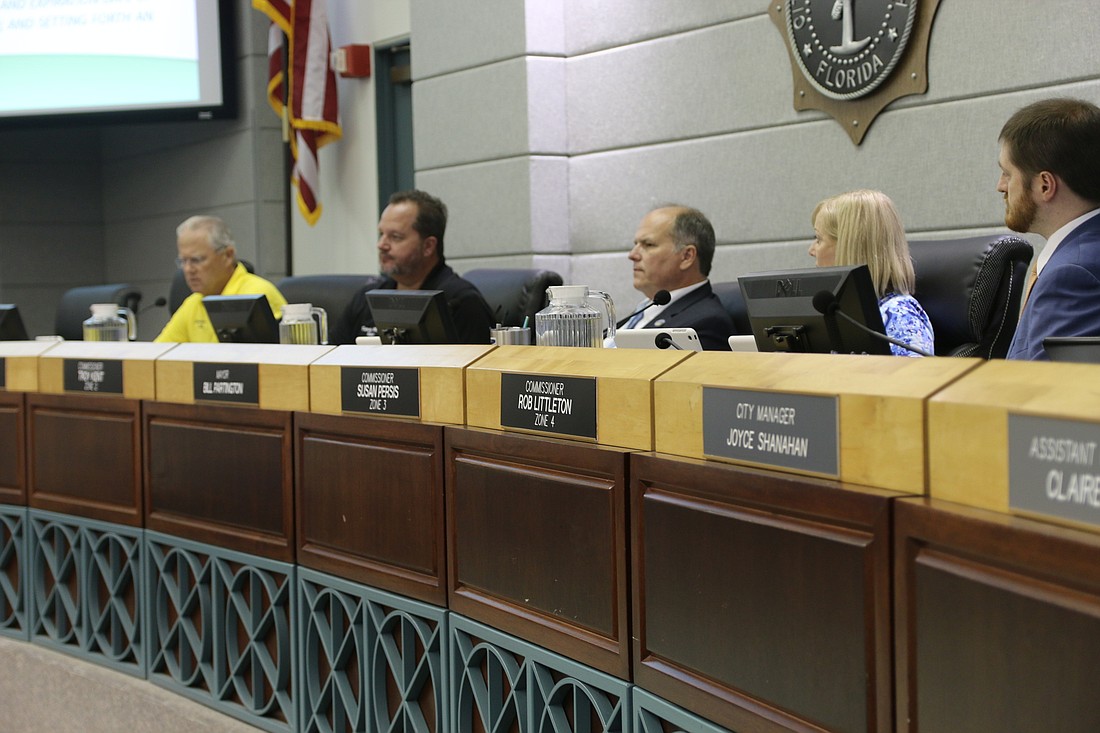- April 23, 2024
-
-
Loading

Loading

The City Commission issued further amendments to its educational straw ban ordinance at its Tuesday, Aug. 20 meeting, this time eliminating all mentions of polystyrene and polypropylene, two common plastic polymers. The first reading of the ordinance passed 4-1, with City Commissioner Rob Littleton voting against.
The chosen changes were led by City Commissioner Dwight Selby, who said that government can occasionally trigger the "law of unintended consequences," and that he was concerned about that during the first draft of the ordinance. The more he read the ordinance, he found other things to tweak. Selby wasn't the only one to recommend changes to the ordinance; Mayor Bill Partington also suggested changing some of the wording, but felt Selby's recommendations were sufficient in the end.
What the city is trying to address is plastic straws and stirrers, Selby said.
“I don’t even really know what polystyrene and polypropylene is, and I don’t know what all the things it’s used in," Selby said.
David Slick, CEO of Command Medical Products, spoke at the meeting, and sent Selby an email earlier in the week about his concerns regarding the straw ban ordinance, as his company uses single-use plastic components in its role in the health field. He didn't oppose a ban on plastic straws or stirrers, but worried about the ordinance language stating the city's goal was to eliminate plastic.
“Nobody wanted to create a straw police and have code enforcement running around figuring out ways to charge people $250 a day for using a plastic straw.”
Mayor Bill Partington
City Commissioner Susan Persis, who led the charge for instating the ordinance, said she was "dumbfounded" with the additional changes. She said she was disappointed because the ordinance keeps getting "smaller and smaller." Taking a step back would make the city look bad, she said, and added that she hasn't received one negative call about the ordinance.
“We will be here for years if we nitpick every little thing it says," Persis said.
A sentence adding an affirmative statement that the city would lead by example was also added.
“I think this is exactly what government is supposed to be doing," Partington said. "We’re supposed to be provoking thought on issues like this. We’re supposed to educating, and we’re supposed to be leading by example.”
A workshop to shape the future of the ordinance could be coming in the future.
The owner of the planned Ocean Club gift shop, which will occupy the former site of Julian's Dining Room and Lounge, will be granted most of his requested Land Development Code changes for the property in a split 3-2 commission vote on first reading.
Owner Pinchas Mamane will get a reduced 15-foot buffer and outdoor storage. Mamane also wanted to waive the wall requirement, but instead, the commission said it wanted a 6-foot white vinyl fence. City Commissioners Troy Kent and Susan Persis voted against the changes, due to the outdoor storage component.
Kent said outdoor storage makes sense at other businesses, but wasn't sure Ocean Club fit in the same category as Lucky's or Lowe's, who both were granted the exception.
The original Julian's structure at 88 S. Atlantic Ave. will be demolished for the gift shop. The 15 foot buffer will allow for 23 more parking spaces, to be shared between neighboring beachside businesses.
The City Commission approved a change in density to the future land use map with a 4-1 vote on first reading, which will allow for apartments to be built by the Dollar General on U.S. 1. City Commissioner Troy Kent voted against.
CST Holdings LLC sought to amend about 2.52 acres from low density residential to medium density residential, increasing that area from 4.3 units per acre to 12. It also sought to reduce 3.48 acres in designated general commercial from 32 units per acre to 22 units.
Without the changes, the 6-acre parcel near Highland and Dix Avenue would allow for 122 units to be built. The changes will bring that down to 107, but James Stowers, who spoke on behalf of CST Holdings, said that the number of units will be much less once the developers get down to specifics regarding setbacks and parking.
City Commissioner Rob Littleton was hesitant to increase density, but said he'd support it. However, he didn't guarantee he'll support zoning changes moving forward once the site plan has been submitted. Kent said the project is a big unknown at this point.
“There’s no way that I can sit here and vote on a project that will bring more traffics to these streets," Kent said.